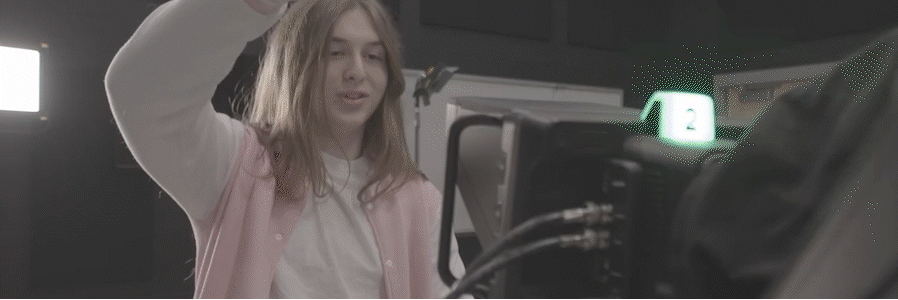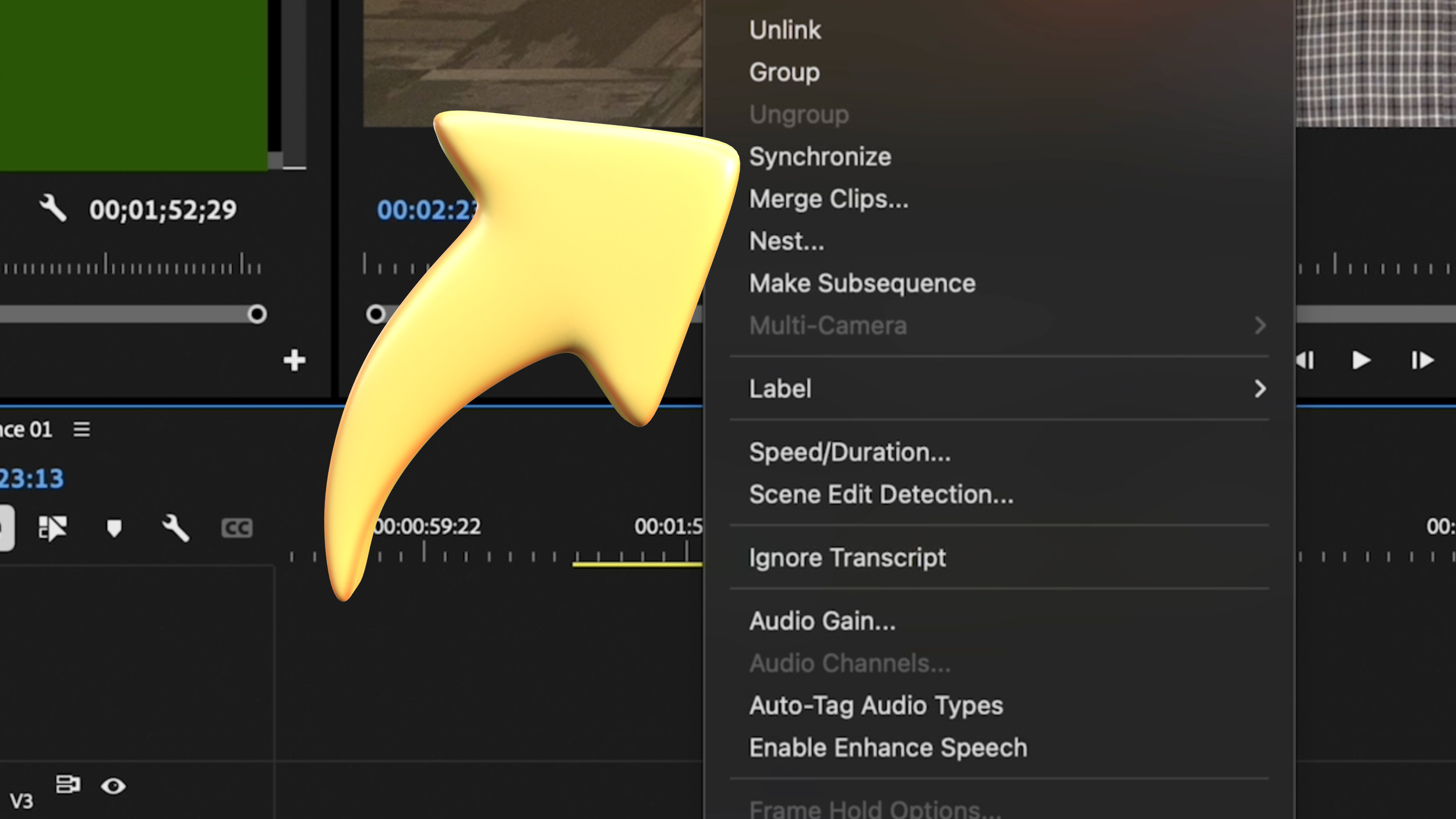How To Stay Sharp In A Dull World
Someone once asked me “How do you know about all of this new stuff? How do you stay ahead of the curve? When you spend most of the year in the classroom teaching the same things year in and year out.” I recently revisited that thought as I talked with Josh Dempsey from Marietta High School about his pending trip to Las Vegas for NAB 2024.
I have been out of the classroom for a couple years now and truthfully I have spent a lot of time reflecting on my time and the things I accomplished in such a short time. I really enjoyed my time teaching and I do miss it at times. But I think the thing I enjoyed almost as much as my relationships with my students was the constant learning that I had to do to stay ahead of the curve. That learning didn’t come from the classroom though. That learning came from working with my church.
I started working in church media in 2005 at a small church that met in a “cafe-church-atoruim” in Kernersville, North Carolina. It was a mobile church so every Sunday we would unload and install the entire production - lights, sound, projectors, everything. I was primarily there to run sound for the band - drums, electric guitar, acoustic guitar, keys, and a handful of vocalists. It was fun. I learned a lot. I learned to improvise when the lights weren’t really up to par (pun intended) and the stage was darker this week than next. I learned about the “talent” knob on the audio board that made that one lady sound better despite her inability to carry a tune. I was constantly learning because every week there would be another problem to be solved.
A while later, I moved to Atlanta and got involved in another small church but this time the situation was different, the church had a permanent facility so the load and unload tasks were not there but the struggle of a small church that looks to larger churches for inspiration was the new mountain to climb. The goal for production there was to create as big a presence as possible using (literally) taped together equipment and workflows that often required three hands, i.e. the three consoles that needed to be operated at the same time to control the lights in the auditorium.
I learned a ton at that church. I equate it most to being in the classroom. The idea of wanting to do bigger and better things and comparing your program to others while having access to a fraction of the budget needed to pull of those things. But…. with some trial and error, often more error, you can make it happen.
** I feel like I need to stop for a moment and give a little more background: At this time in my life, I was a marketing director for a radio group in Atlanta. I saw radio going the way of the internet several years prior so I was in the process of learning web design. As a part of that, I saw web design going the way of video so I was dabbling in video production. I had NO idea what I was doing…. I was cutting video in After Effects. Let that sink in when I try to tell you how much I learned as we move on….***
At that church, I learned the most about Adobe Premiere Pro and basic video editing. I learned about basic camera operation. I learned about sound design in video. I learned how to sync audio and video in post (we would record the band performances and I would sync in post to the video). Lighting was something that I didn’t have a clue was a thing at the time. I spent a ton of time learning about lighting in video. I learned Chroma Keying - the technical list goes on and on.
As for story telling, this volunteer role was the first time I actually thought about telling a story in video. Trying to capture a video that compels was instantly fascinating to me. I fell in love with writing and planning videos.
At the time, I thought it was fun and I was able to use it at work which made me enjoy it even more. Like I said, I was in a great position to create content but had no skills. Now I look back and shutter at the stuff I posted. (Check out some of the best below - if you want to see the others, you will have to do the work to get to it….)
I really learned that creativity in production is a muscle that has to be flexed regularly in order to be strong. Too often as teachers, that’s not an option as you are trying to survive. Between deadlines for the news snow or a 504 meeting, your creativity is placed on the back burner and you don’t get a chance to flex it. That’s where I believe that volunteering to help someone with creative endeavors is a huge benefit. It’s a benefit for you but also that organization.
As a teacher, you have a special set of skills that many don’t possess and those skills shouldn’t be overlooked. From your ability to see into the future (mistakes, problems, etc) to your ability to plan to hit a deadline, your skill set is invaluable to many outside of education. I have experienced that many times. I have been working with a group and the ability to tap into my “teacher brain” helped me to prevent issues later.
My current volunteering role has stretched me beyond what the others did in that I’m having to learn and execute at the same time a lot more. My primary role is director for our live stream efforts. That’s almost second nature for me at this point but the learning and execution comes in learning the rest of the volunteer team’s skills and abilities as we are live. The volunteers range from young, inexperienced and nervous to older, experienced, and uncertain. None of the camera operators have any experience - it’s all be through volunteering and their experiences. It’s kind of like working with intro level students most weeks - explaining pans, tilts, etc. Just like working with students it is SUPER rewarding. It’s great to talk with someone after a couple of weeks and they are now consuming video differently and talk about things they see in video that they never knew existed.
In this role, I’m directing and punching a live show that goes live to the world but also is used as image magnification (imag) in the room. So I’m having to split my brain into sections - what does the live stream see and what is on the led panels in the room. Again, this is much like teaching. As a teacher, you have to balance product vs. producer. How do you get the producer to create a product that is usable in other ways? How do you coach the producer to get that product to the level they are capable of.
I could go on for three days about this…. But to sum it up. I fully believe that no matter how busy you are, you can volunteer to help someone in order to better your skills. I volunteer at church for several reasons:
I believe in their message and mission - you can do the same with a church or other organization
For the most part, churches have set schedules that don’t interfere with my job obligations. If I am working before noon on a Sunday, I have bigger problems.
I know my skills as a leader can help an often rag tag team of volunteers achieve the mission of the team.
Churches have a ton of opportunities for me to grow. While I typically can be found in the production room, I can also be found behind an audio board, lighting console, or a camera.
I will not be convinced that if you are just teaching and not going anything outside of the classroom or school, you will get stagnant and your teaching and program will do the same. When I think of the most successful teachers that I know of, they all have some sort of outside project that they do to help them stay sharp. It may not be intentional and may be a direct by-product of their teaching job but it's there.
I would also like to you pay attention to the fact that I chose the word volunteer. That is not an accident. A lot of teachers that I talk with who are burned out, grumpy, and just generally unpleasant to be around are those who are doing outside projects but for financial gain. Once money comes into play, the dynamic changes. You now have another stressor in your life. It’s no longer able to be an investment in yourself. It’s now something with additional expectations placed on someone who is already loaded down with extreme expectations. I love cooking BBQ. I have judged BBQ contests for years but I have not and will not ever compete. Once I put money on the table, it isn’t going to be as enjoyable. It’s the same with teaching.
Finally, as the longest outro of an article ever continues, volunteering will open doors for you that you didn’t know existed. A former colleague, and one of my favorite all-time people, used to tell his students that “Availability Breeds Opportunity.” My teaching career is the finest example of that axiom. During my time at the second church I talked about, I took a leap of faith and decided that I would teach a class on finances. It was open to anyone from the church. I wasn’t a teacher but tried my hardest to lead and prepare myself in order to be the leader I thought I needed to be. About four months into the class, one of the members called me. I knew he worked for the school system but not sure what he did. I will never forget the conversation:
“I need you to do me a favor” - member
“Ok what’s up” - me
“I need you to sit for an interview at one of the schools” - member
“I am not looking for a job much less a teaching job” - me
“Just do me a favor and sit for the interview and see what they have to say. If for no other reason, so we can fill the interview pool.” - member
“I’m not a teacher.” - me
(giggle) - member
Fast forward three weeks and I started my teaching career… in OCTOBER for a class that had had a sub since AUGUST! I wholly attribute the last almost 20 years of my life to the fact that I took the time to volunteer, the risk to put myself out there to learn new things, and the faith to just let things happen.
Meet the Author, Tom White
Tom White is the Education and House of Worship Specialist at Amitrace. Tom's role is to help educators build better programs through better training, planning, and equipment. Before joining Amitrace, Tom was the Broadcast Engineer at Grady College of Journalism and Communication at the University of Georgia. Prior to that role, Tom taught at Morgan County High School and Rockdale Career Academy where he and his student produced thousands of live streams for sports, news, and community events. Tom’s program at the Rockdale Career Academy received the NFHS Network Program Of The Year in 2016 and his program at Morgan County High School received the New Program of the Year title in 2018. Tom has been a long time contributor to many publications and is the host of Teaching to The Test Pattern Podcast.











Got shaky footage? No problem! In this quick tutorial, learn how to use Warp Stabilizer in Adobe Premiere Pro to smooth out your shots effortlessly.